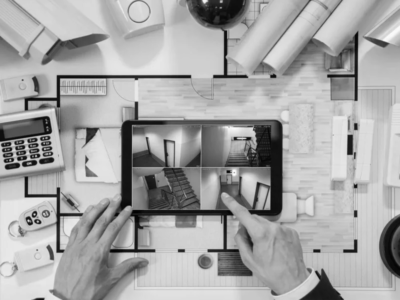In an era dominated by digital transactions and data-driven decision making, the security of physical data centers and IT infrastructure is as critical as cyber security. Facilities management services play a pivotal role in ensuring that these physical assets are protected against threats that could compromise an organization’s data integrity and continuity. This article explores how effective facilities management can bolster the security of data centers and IT facilities, safeguarding them from physical intrusions and environmental hazards.
Strategic Site Selection and Design
Secure Location Planning
The initial step in safeguarding data centers involves strategic site selection. Facilities management professionals assess potential risks such as proximity to flood zones, earthquake-prone areas, and high-crime regions. Choosing a location with low exposure to natural disasters and human threats is crucial for minimizing risk.
Designing for Security
Once a site is selected, the design phase focuses on security. This includes structuring the building to withstand various threats, from natural disasters to unauthorized access. Facilities management services collaborate with architects and security consultants to integrate advanced security features such as blast-resistant walls, limited access points, and surveillance-friendly layouts.
Robust Access Control Systems
Implementing Tiered Access
To prevent unauthorized access to sensitive areas, facilities management implements tiered access control systems. These systems ensure that only authorized personnel can access certain areas of a data center, based on their role and clearance level. Biometric systems, such as fingerprint and retina scans, are commonly used for enhanced security.
Continuous Monitoring and Surveillance
Video surveillance and alarm systems are installed and maintained by facilities management to monitor data centers around the clock. This includes the use of CCTV cameras strategically placed throughout the premises, coupled with motion detectors and intrusion detection systems that alert security personnel to unauthorized access attempts.
Environmental Controls and Monitoring
Temperature and Humidity Regulation
Data centers require precise environmental conditions to operate efficiently and prevent hardware damage. Facilities management services are responsible for installing and maintaining HVAC systems that regulate temperature and humidity levels within optimal ranges. Regular checks ensure these systems function correctly, preventing overheating or excess moisture, which could lead to hardware failures.
Fire Suppression Systems
Given the electrical nature of data centers, there is a constant risk of fire, which can be devastating. Facilities management installs and maintains state-of-the-art fire suppression systems designed specifically for data environments. These systems detect and extinguish fires quickly while minimizing water usage and electrical interference that could damage equipment.
Infrastructure Maintenance and Resilience Planning
Preventive Maintenance
Routine maintenance of the physical infrastructure of data centers is crucial for preventing downtime and data loss. Facilities management services ensure that electrical systems, generators, and cooling systems are regularly inspected and serviced to keep them running efficiently and reliably.
Disaster Recovery and Business Continuity
Facilities management plays a critical role in disaster recovery and business continuity planning. This involves designing and implementing strategies that enable the quick restoration of data center operations following a disaster. Backup power supplies, such as generators and uninterruptible power supplies (UPS), are maintained by facilities management to ensure that critical systems remain operational during and after a disaster.
Compliance and Best Practices
Adhering to Standards
Data centers are subject to a variety of regulatory standards that dictate how data should be securely handled and stored. Facilities management ensures that all physical security measures comply with relevant standards such as ISO/IEC 27001, SSAE 18, and others that pertain to data security and privacy.
Regular Audits and Assessments
To maintain high standards of security, facilities management conducts regular audits and assessments of physical and environmental controls. These audits help identify vulnerabilities and ensure continuous improvement in security protocols.
Conclusion
Facilities management services are essential for enhancing data security in today’s digital world. By managing physical site security, environmental controls, infrastructure maintenance, and compliance, facilities management professionals provide a comprehensive security approach that protects critical data assets from both physical and environmental threats. As technology evolves and data continues to drive business operations, the role of facilities management in securing data centers will become increasingly important, underscoring the need for sophisticated, integrated security solutions in organizational infrastructure planning.













Comments